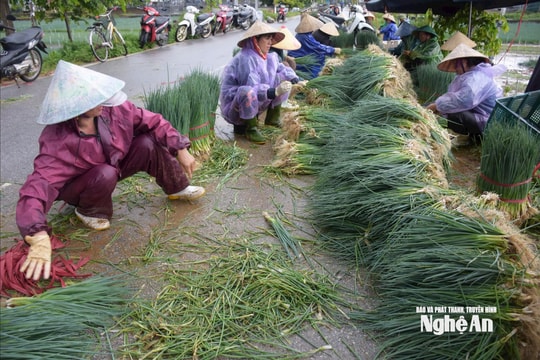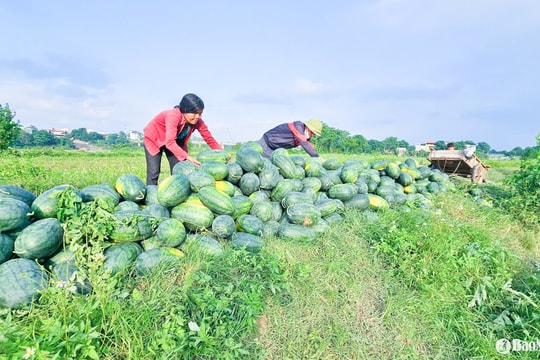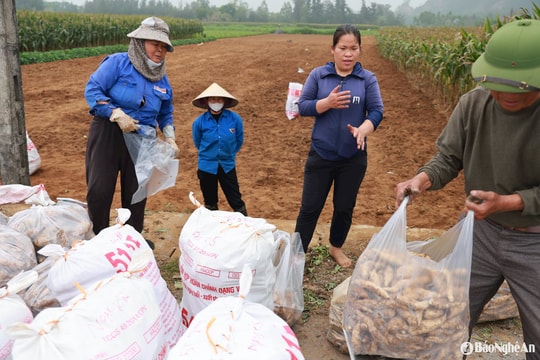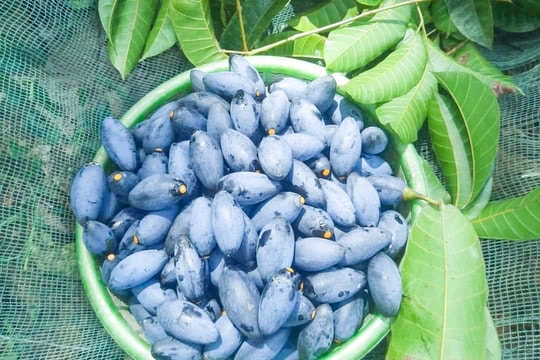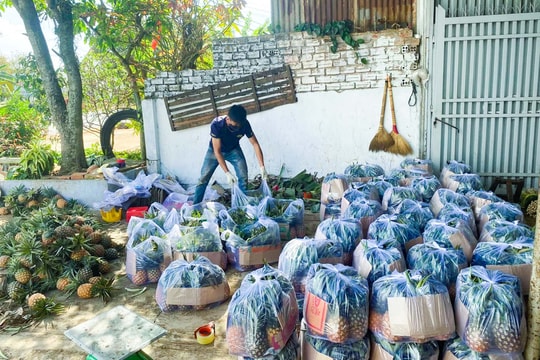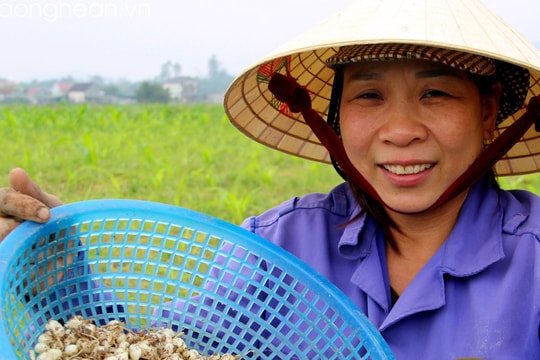Lacking experience, Vietnamese farmers are again 'hit' by Chinese traders
Not only pork, but most other agricultural products of Vietnam also face congestion problems leading to price drops when China stops buying or limits buying.
In Dong Nai, the selling price of live pigs at farms is currently only 42,000-43,000 VND/kg, down 5,000-6,000 VND/kg compared to the price at the end of last month. Compared to the "peak" price in April and early May 2016, the price of live pigs in Dong Nai has decreased by 12,000-13,000 VND/kg, equivalent to a decrease of more than 23%.
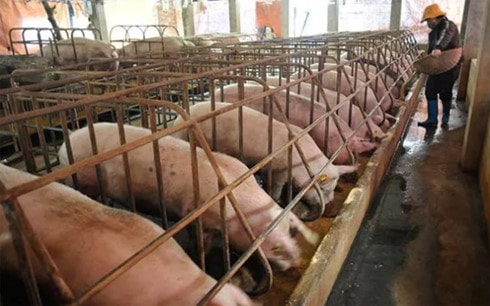 |
China reduces purchases so pork prices fall sharply |
According to the latest report of the Ministry of Agriculture and Rural Development, the purchase price of live pigs in the southern provinces in July 2016 generally showed a downward trend. Specifically, in some localities such as Vinh Long and An Giang, the price has decreased by 500-1,000 VND/kg compared to the beginning of the month and is currently at 42,500 VND/kg and 44,000 VND/kg, respectively.
Notably, in Dong Nai, the price of live pigs sold at farms is currently only 42,000-43,000 VND/kg, down 5,000-6,000 VND/kg compared to the price at the end of last month. Compared to the "peak" price in April and early May 2016, the price of live pigs in Dong Nai has decreased by 12,000-13,000 VND/kg, equivalent to a decrease of more than 23%.
The reason is that there are still many unsold pigs in China, so this country has limited imports. Meanwhile, Dong Nai supplies more than 50% of Vietnam's live pig output to the Chinese market, so the price of pigs is immediately affected.
Similarly, in the Northern market, the price of live pigs these days fluctuates from 50,000 to 52,000 VND/kg, down 6,000 to 7,000 VND/kg compared to the average price of many previous months. Many large pig farm owners in Hoai Duc (Hanoi) and Binh Luc (Ha Nam) said that since the end of June, Chinese traders have gradually withdrawn, and by mid-July they have completely disappeared. That has pushed the price of pigs down day by day.
Mr. Nguyen Van Trong, Deputy Director of the Department of Animal Husbandry (Ministry of Agriculture and Rural Development) said that China is a large market and a potential market for the pig farming industry in our country. However, up to now, live pigs have been exported to China entirely through unofficial channels, and exporting through this route is completely passive, facing many risks when being strictly inspected and controlled.
Therefore, not only pork but most other agricultural products of Vietnam also face congestion problems leading to price drops when China stops buying or limits buying, Mr. Trong said.
He said that the Chinese market is very fond of pigs weighing more than 100kg and with a lot of fat. Accordingly, when their market is in short supply, they import Vietnamese pigs in large quantities at sky-high prices, while our people then raise a lot of them. After about 4-5 months, when the Chinese market is full, they limit imports, leaving a lot of surplus pigs, while the domestic market does not favor pigs with large weight and a lot of fat, so the price of pigs will inevitably decrease.
According to Mr. Trong, China has no plan, they do not actively buy, only when there is a shortage will they buy through Vietnamese traders. Therefore, people need to be aware that if they buy a lot and rush, there will be consequences, after about 5-6 months there will be a surplus of products, the price will decrease.
For example, the output of pork fat exported to China is not statistically available. There are times when at Cao Bang or Lang Son border gates, there are up to 50-60 trucks carrying pigs to China, Mong Cai border gate also has up to 30 trucks a day but not regularly, some days only a few trucks, very unstable.
"People need to be very careful when replacing their herds, don't replace them en masse when prices are high, and don't abandon them when prices are low. If you consider it a livestock farming profession, you must raise them stably and regularly to bring in profits and efficiency," Mr. Trong advised./.
According to VOV
| RELATED NEWS |
|---|

